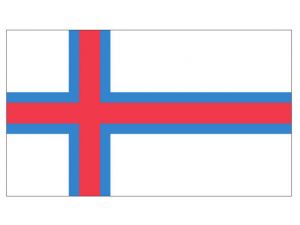Language/Faroese/Vocabulary/Travel-Vocabulary
| ◀️ Modes of Transportation — Previous Lesson | Next Lesson — Question Words ▶️ |
Introduction[edit | edit source]
In this lesson, we will explore useful Faroese vocabulary related to travel. Whether you are planning a trip to the beautiful Faroe Islands or simply want to expand your language skills, learning these travel-related words will be beneficial. By the end of this lesson, you will be able to confidently navigate transportation, ask for directions, and discuss travel plans in Faroese.
Modes of Transportation[edit | edit source]
Let's start by learning the Faroese words for different modes of transportation. Knowing these terms will help you communicate your preferred method of travel and understand transportation options while exploring the Faroe Islands.
Here are some common modes of transportation in Faroese:
| Faroese | Pronunciation | English |
|---|---|---|
| bilur | [bɪˈlʊːɹ] | car |
| bussur | [ˈbʊsːʊɹ] | bus |
| ferja | [ˈfɛɹja] | ferry |
| flugvøllur | [ˈflʊɡvœlʊɹ] | airport |
| flugvøllur | [ˈflʊɡvœlʊɹ] | airport |
| skip | [ˈʃɪpː] | ship |
| tog | [ˈtɔːg] | train |
Travel Vocabulary[edit | edit source]
Now that we know the different modes of transportation, let's dive into some travel-related vocabulary that will come in handy during your journey. From luggage to tickets, these words will help you navigate various travel situations with ease.
Luggage[edit | edit source]
When traveling, it's essential to know the Faroese words for different types of luggage. Here are some useful vocabulary words related to luggage:
| Faroese | Pronunciation | English |
|---|---|---|
| koffert | [ˈkɔfɛɹt] | suitcase |
| taska | [ˈtasːka] | bag |
| handtaska | [ˈhɛntˌtasːka] | handbag |
| ryggjataska | [ˈɹɪkːjaˌtasːka] | backpack |
| ferðataska | [ˈfɛɹðaˌtasːka] | travel bag |
| handgegn bagasjari | [ˈhɛnˌdɛjn ˈbaɡasˌjaːɹɪ] | carry-on luggage |
| koffert við hjólum | [ˈkɔfɛɹt ˌvɪð ˈçœlʊm] | wheeled suitcase |
Tickets[edit | edit source]
To travel, you often need tickets for various modes of transportation. Let's learn the Faroese words for different types of tickets:
| Faroese | Pronunciation | English |
|---|---|---|
| miði | [ˈmidɪ] | ticket |
| flúgvtogstur | [ˈflʊɡˌtoːkstʊɹ] | flight ticket |
| bilstjóratogstur | [ˈbɪlˌstjɔːɹaˌtoːkstʊɹ] | car rental ticket |
| bussmiði | [ˈbʊsˌmidɪ] | bus ticket |
| flógvimiði | [ˈflɔːɡvɪˌmidɪ] | ferry ticket |
| trainmiði | [ˈtɹɛɪnˌmidɪ] | train ticket |
Directions[edit | edit source]
When traveling to a new place, it's important to know how to ask for directions. Here are some common Faroese phrases and vocabulary words that will help you navigate your way:
| Faroese | Pronunciation | English |
|---|---|---|
| hvar er...? | [hvaɹ ˈaɪɹ] | where is...? |
| til høgru | [tɪl ˈhœɡɹʊ] | to the right |
| til vinstru | [tɪl ˈvɪnstɹʊ] | to the left |
| frammanfyri | [ˈfɹamːanˌfɪɹɪ] | in front of |
| aftanfyri | [ˈaftanˌfɪɹɪ] | behind |
| til ovast | [tɪl ˈɔvˌast] | to the top |
| til niðst | [tɪl ˈniðst] | to the bottom |
| ílongs | [ˈiːˌlɔŋks] | straight ahead |
| avstígi | [ˈavˌstʊɪjɪ] | exit |
| broytingarstøð | [ˈbɹɔɪtɪŋaɹˌstʊð] | bus stop |
| flugvøllur | [ˈflʊɡvœlʊɹ] | airport |
| bensinstøð | [ˈbɛnsɪnˌstʊð] | gas station |
| veitingarstaður | [ˈvɛɪtɪŋaɹˌstaːjʊɹ] | restaurant |
Cultural Insights[edit | edit source]
When it comes to travel and transportation in the Faroe Islands, there are a few cultural insights worth mentioning. The Faroese people are known for their love of nature and outdoor activities. It's common for locals and tourists alike to explore the islands by hiking, biking, or taking scenic drives. The lack of traffic and the breathtaking landscapes make the Faroe Islands an ideal destination for those seeking a peaceful and adventurous getaway.
The Faroe Islands are also known for their efficient and reliable public transportation system. The bus network connects most towns and villages, making it easy to explore different parts of the islands. Additionally, the ferry service provides transportation between the islands and is an excellent way to experience the stunning coastal scenery.
Exercises[edit | edit source]
Now it's time to put your new vocabulary to the test! Complete the following exercises to practice using the travel-related words and phrases you have learned.
1. Match the Faroese words with their English translations:
a) bilur b) flúgvtogstur c) handtaska d) miði e) til høgru f) avstígi g) broytingarstøð
1) suitcase 2) flight ticket 3) car 4) to the right 5) exit 6) bus stop 7) handbag
Solution: a) 1) bilur b) 2) flúgvtogstur c) 7) handtaska d) 3) miði e) 4) til høgru f) 5) avstígi g) 6) broytingarstøð
2. Complete the following sentences with the appropriate Faroese words:
a) Hvar er flugvøllurin? b) Eg vil keypa ein _______________. c) Tú kanst fara ílongs, so finnur tú fram til _______________. d) Kanna vit _______________ fyri avstígini? e) Tú finnur bussamiða í _______________.
Solution: a) Hvar er flugvøllurin? b) Eg vil keypa ein miði. c) Tú kanst fara ílongs, so finnur tú fram til veitingarstaðin. d) Kanna vit broytingarstøðina fyri avstígini? e) Tú finnur bussamiða í bussinum.
Conclusion[edit | edit source]
Congratulations! You have successfully expanded your Faroese vocabulary related to travel and transportation. Now you can confidently discuss modes of transportation, ask for directions, and navigate travel situations in Faroese. Remember to practice these words and phrases regularly to reinforce your learning. Happy travels!
Sources[edit | edit source]
Other Lessons[edit | edit source]
- Basic Greetings
- Eating and Drinking
- Count to 10
- Numbers 1 20
- Clothes
- Discussing Interests
- Introducing Yourself
- Geography
- Drinks
- Animals
| ◀️ Modes of Transportation — Previous Lesson | Next Lesson — Question Words ▶️ |

